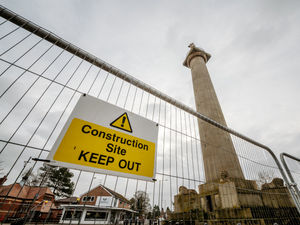Britain back in recession, but no need to panic
Since the beginning of the year, economists have squabbled over whether or not Britain was destined to plunge back into recession.
Since the beginning of the year, economists have squabbled over whether or not Britain was destined to plunge back into recession writes business editor Thom Kennedy.
'Yes', warned some, wagging fingers toward the government and cupping an ear at the spluttering sound being made by the UK economy.
Others were more optimistic, talking up the country's growth.
And while yesterday's news that the national economy had contracted for the second consecutive quarter - automatically flicking the switch on the recession warning light - presents something of a Pyrrhic victory for the naysayers, it only really tells half the story.
In mapping out a double dip recession, many warned that the second collapse would be deeper and more severe than the first.
However, the decline in output from the UK economy which has left us back in the brown stuff has actually been very slight.
It adds to the impression that rather than Britain falling into one hole, climbing back out then falling into a deeper one, we are simply stuck in a trough, unable to muster the energy to clamber out.
Only this month the British Chambers of Commerce predicted that the economy had grown in the first quarter of the year, but warned the pace of improvement remains sluggish. Our decline into recession has been similarly slow: You can watch a car rolling down a hill or falling off a cliff and there's nothing you can do about either, but one scenario will do more damage than the other.
In truth, the act of going into recession means very little on a practical level, but what it tells us about the UK economy is pretty stark.
Every factor that causes such a negative state of being has already taken place, and GDP may actually be back on the up by. Indeed, the figures for the last quarter may yet be revised upwards.
What is more important on a practical level is what it means for business confidence, which had been improving. Barclays predicted last month that more than half of UK businesses plan to create jobs this year, and said at the end of 2011 that this year would see growth above 2011 but below trend, with the crisis in the Euro zone the biggest hindrance to an expanding economy.
Yesterday's figures shouldn't change that. The fall in GDP was so slight that we can still come out at the end of 2012 having grown more than we did in 2011.
Many companies are reporting bustling business. Others say their only struggle is to find people with the right knowledge and training to help meet the demand in their groaning-at-the-seams order books. For some, the recession has been a positive blessing. A rubber stamp with the word 'recession' on it shouldn't mean those companies batten down the hatches and wait for the storm to pass.
More money needs to start circulating in the economy if Britain is to really start to grow once again, and it's the responsibility of the government to find ways to make that happen.
In the meantime we shouldn't panic because we are back in recession. We haven't faced a sudden collapse.
The latest figures tell us little that we didn't already know - the economy is treading water, but has been pulled beneath the surface by falls in the construction sector.
It's not going to get much worse. It's just frustrating to think that we face a long wait before things get significantly better.





